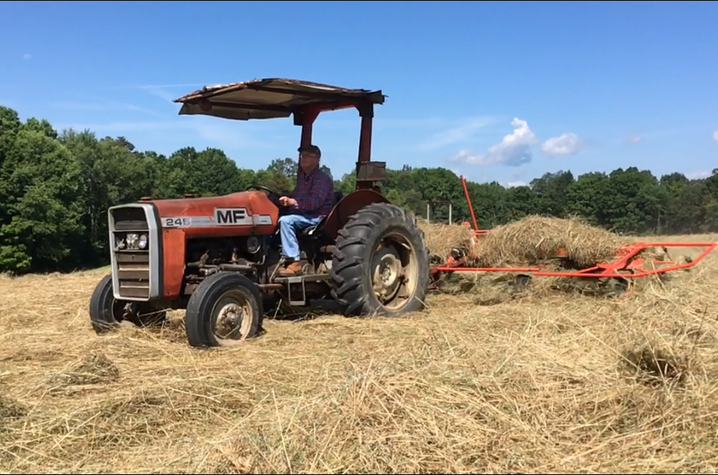UK HealthCare Offers Unique Surgical Approach for Heart Failure Patients

LEXINGTON, Ky. (Feb. 26, 2021) — Kyle Groves is rooted in the farm. He took over his family’s fifth-generation dairy farm business in 1969.
“The day begins before the sun rises and ends after sunset,” Groves, of West Virginia, said. “My life revolved around the farm.”
Groves’ days continued this way for 23 years until one day in 1992, he suffered his first heart attack at 48 years old. It was just the beginning of a long road of heart problems to come. Over the years, Groves had six bypasses, an internal cardiac defibrillator (ICD) and cardiac resynchronization therapy (CRT) in 2015. Most recently, after feeling weak and unable to do the things he previously enjoyed, heart surgeons at UK HealthCare (UKHC) placed a left ventricular assist device (LVAD).
A VAD is a mechanical device that supports the heart by pumping blood through the body when the patient’s heart cannot perform properly. This can be a short-term placement while the patient awaits a heart transplant, or for long-term support in patients who cannot receive a heart transplant.
As a resident of West Virginia, Groves receives care through the Congestive Heart Failure Clinic at Charleston Area Medical Center (CAMC). His doctors referred him to UKHC Gill Heart & Vascular Institute for advanced heart failure care.
“We now have an experienced regional partner to provide patients with access to advanced heart failure care,” said Dr. Anthony Uy, associate chief medical officer at CAMC.
Uy adds that the clinical collaboration between UKHC and CAMC has allowed for consistent and sustainable improvement in access to advanced heart failure care that was previously not possible in the region.
“Most particularly, the UKHC Heart Failure program offers patients in West Virginia the potentially life-altering modalities of Ventricular Assist Devices and cardiac transplantation,” he said. “UKHC now has a highly skilled and locally convenient health care team to coordinate pre- and post-intervention care. Our collective efforts are delivering high-quality patient-centric care for an exceptionally vulnerable population.”
Dr. Emma Birks, heart failure cardiologist, and Dr. Rajasekhar Malyala, cardiovascular and thoracic surgeon and assistant professor of surgery, treated Groves before and during his LVAD surgery.
“We used a unique surgical approach for Kyle that did not involve fully opening his chest,” said Birks, who is professor and Section Chief in Heart Failure in the Department of Cardiology. “This technique offers benefits to patients that include reduced complications and reduced hospital stay. Kyle was a good candidate for a thoracotomy.”
Historically, LVADs were placed via a sternotomy, which is a large incision in the middle of the chest through the sternum. Now, LVADs can be placed via a thoracotomy. For most LVAD placements, this means the patient has an incision along their ribs on their left side, along with a small incision at the top of their sternum.
“Clinical evidence supports that patients whose doctors use a thoracotomy approach have fewer complications and have shorter post-operative lengths of stay,” Birks said. “This approach is also useful for patients who may get a heart transplant at a later date, as it will make the transplant less complicated when the surgeon re-enters the chest.”
Groves officially retired from the daily dairy farm work in 2009. Since his surgery, he said he is feeling great – even helping his son in the hayfield on the farm. He also enjoys playing golf, hunting and spending time with his wife, who is always by his side for appointments.
Groves stays up to date with Dr. Birks and is also able to meet for checkups virtually through UKHC’s Telehealth program to avoid the 4.5-hour drive to Lexington.
“I recovered much better than I expected,” Groves said. “I am getting along really well, and I just hope that I can just stay where I am at. I can do just about anything I want.”
As the state’s flagship, land-grant institution, the University of Kentucky exists to advance the Commonwealth. We do that by preparing the next generation of leaders — placing students at the heart of everything we do — and transforming the lives of Kentuckians through education, research and creative work, service and health care. We pride ourselves on being a catalyst for breakthroughs and a force for healing, a place where ingenuity unfolds. It's all made possible by our people — visionaries, disruptors and pioneers — who make up 200 academic programs, a $476.5 million research and development enterprise and a world-class medical center, all on one campus.




